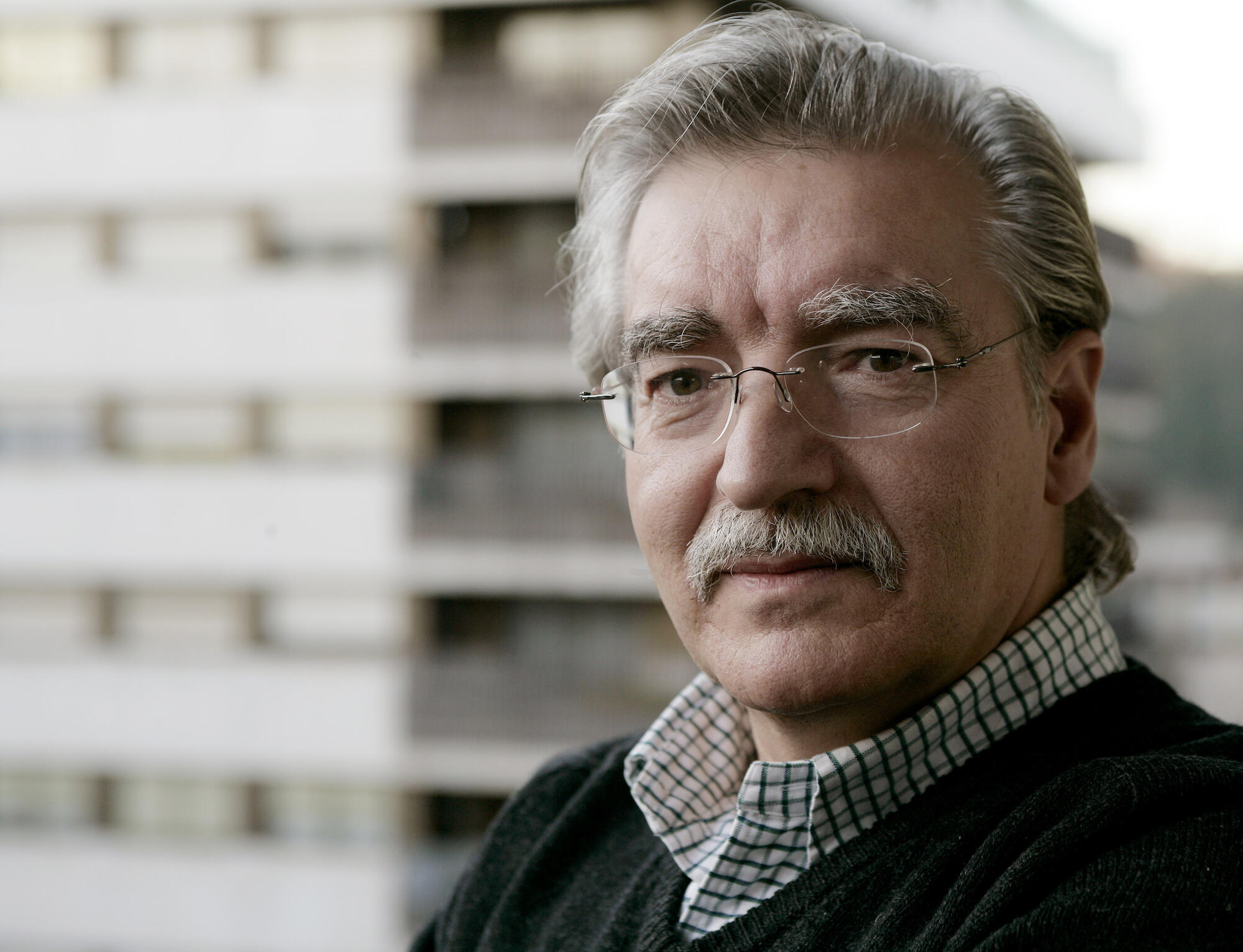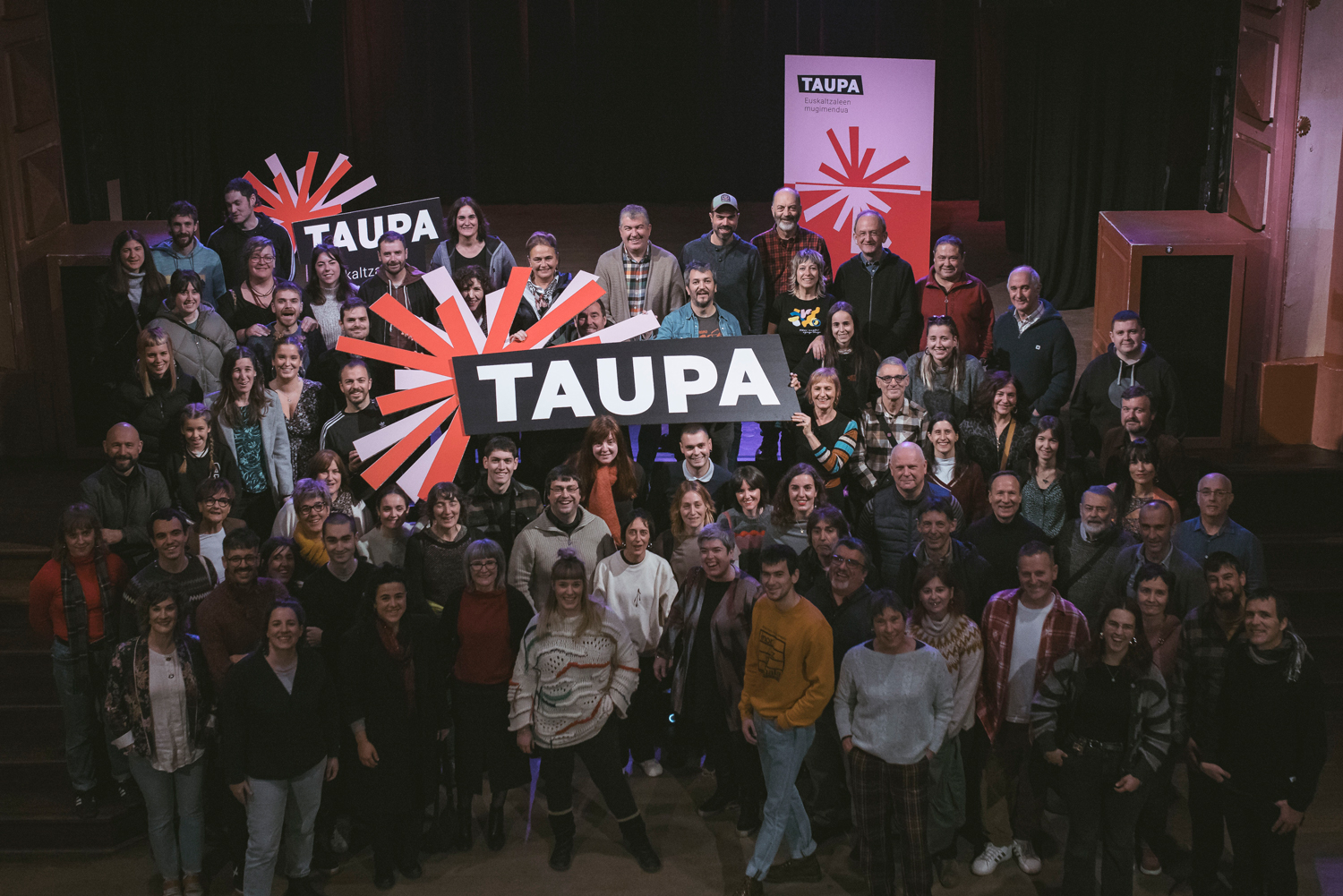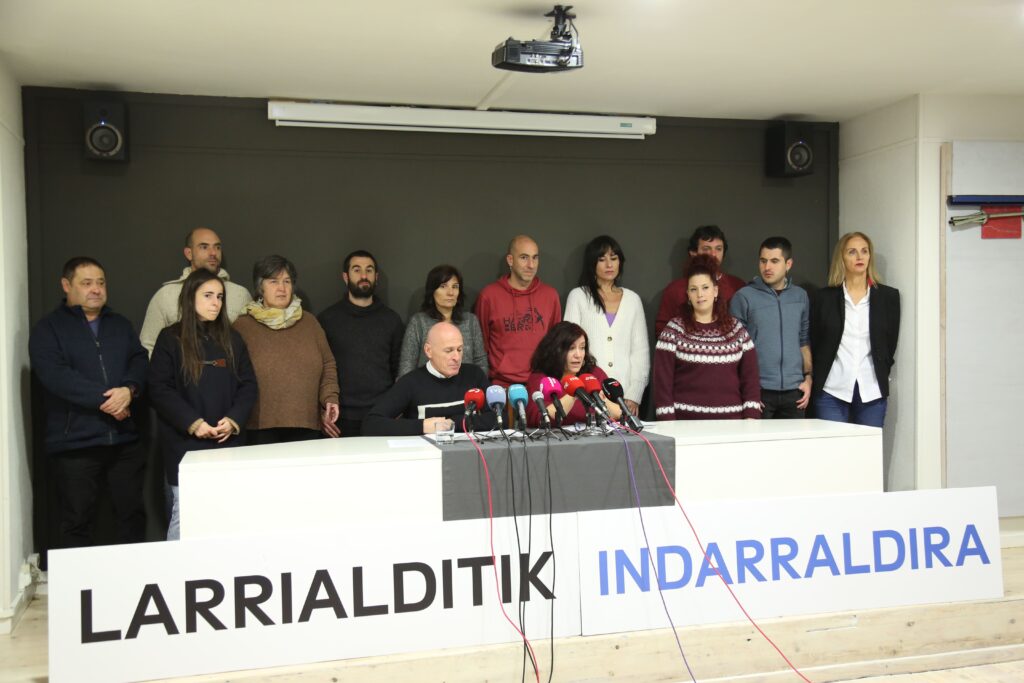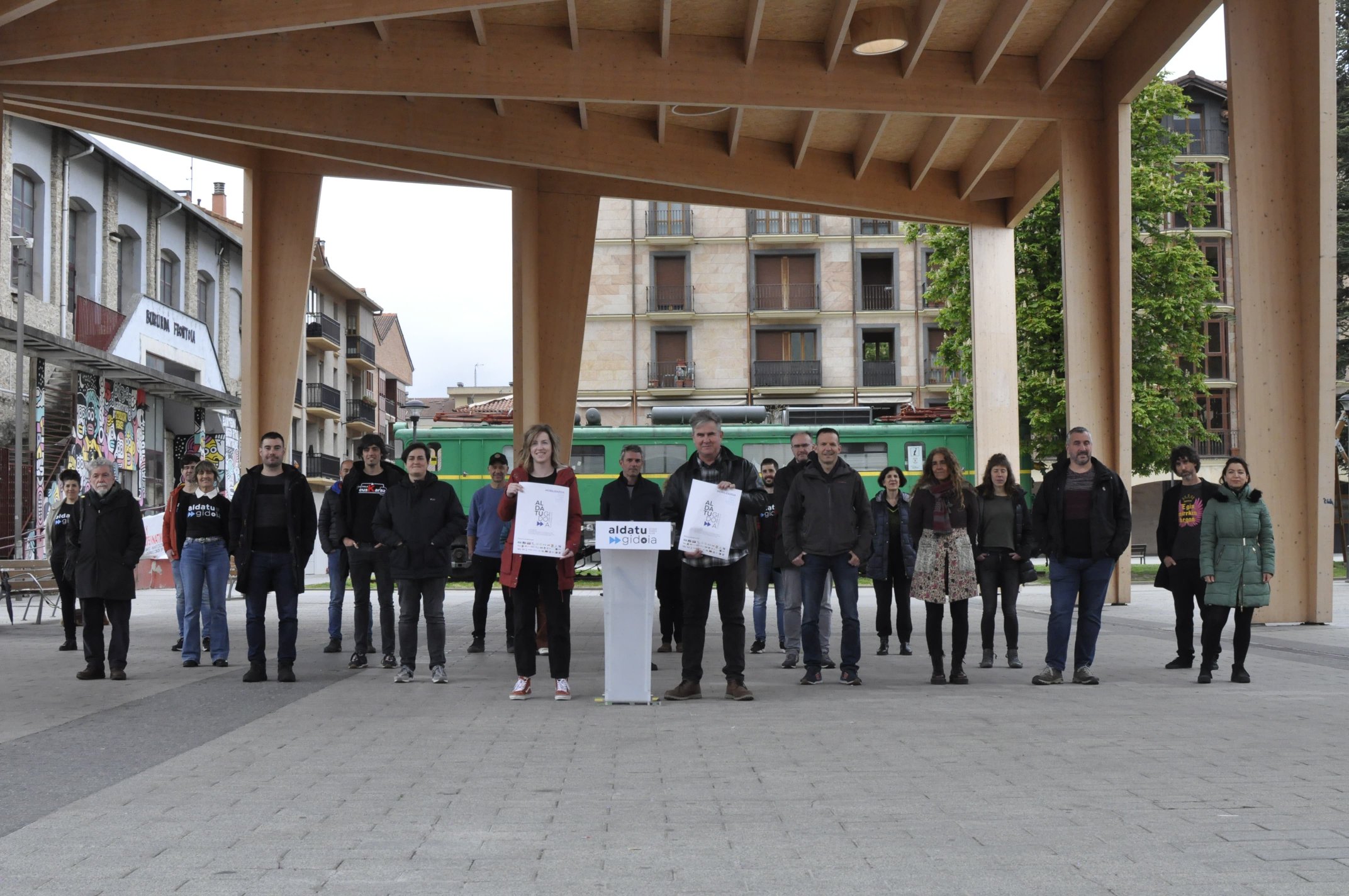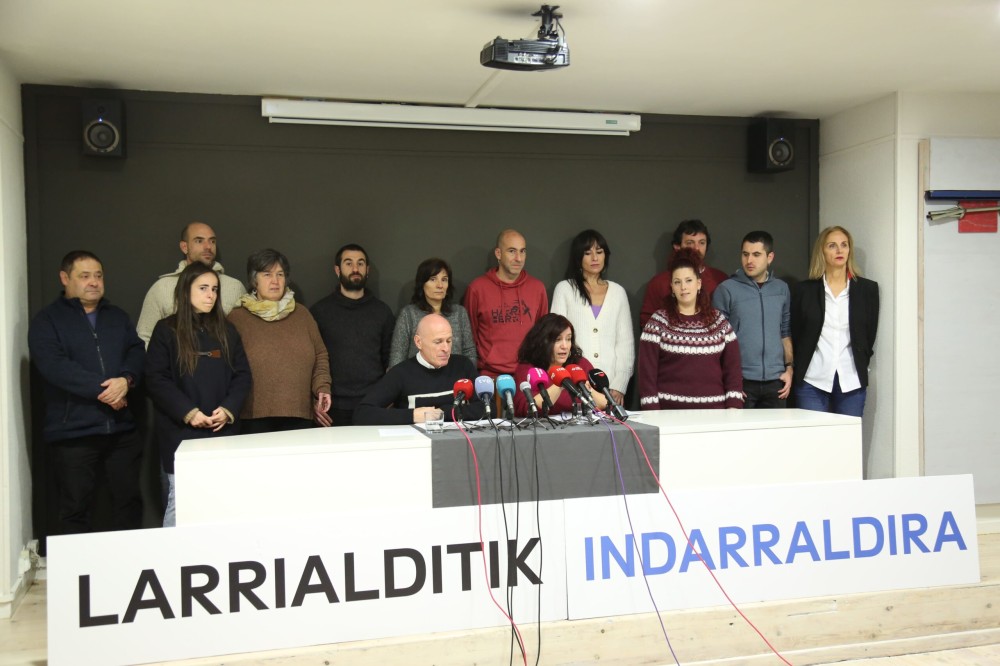"We have to lay the foundations for the reproduction of the Basque Country"
- Sopelano Joanes Igeregi Santamaria proposes a reflection on the challenges and opportunities that the ecological crisis will entail for the Basque country. The collapse of Euskera or Euskera of collapse? In their speeches, members of the Yellow Fever group are related to the past, among other topics, on biodiversity, ecology and the survival of small languages and cultures.

What is the starting point of all this?
Last year I held the XXI Training, Management and Linguistic Practices Course of the Basque Country. It comes from the final work of the master's degree in the 21st century. I had an intuition that the ecological crisis could affect social organization, therefore also the Basque, because any social organization affects the languages that live there. In addition, the possibility of a collapse related to the ecological crisis is mentioned on many occasions, and hence the game of words arose, that is, whether the Basque Country can collapse as a result of these social changes or whether the Basque country will adapt to the new society that will come with the ecological crisis.
So do you think that the ecological crisis can lead to the disappearance of the Basque country?
Yes, or that, or adapt it to this new situation, as it has done in the last thousands of years. The Basque country has had to carry out a constant exercise of adaptation: the society of our territory has been transformed and the Basque country has had to adapt to these changes; the Basque culture has been regenerated to remain in these new social models. It seems to me that in future it will have to go down that road to survive in future social changes. If we do not succeed, then the risks for the Basque people would come, as has happened before.
So, is it a matter of renewal or death?
In short, a language must respond to the specific needs of society, and many generations that we are Euskalduniando do not have adherence to the language, because it does not fulfil some of the central functions of their daily lives; we have given them the language in school, but they live in Spanish outside the school. The Basque community must therefore consider what functions the language should play for its citizens to live in Basque.
Do you think we are moving in this direction?
I believe that in the last 50 years the Basque country has come a spectacular path to adapt to the social transformations that have come. The focus is mainly on the process of Basque cultural activity in the 1960s, when in Euskal Herria there were very important social changes: there was a massive process of migration from rural areas to cities and the lives of most people changed a lot in a few generations. So Euskera lived in rural areas, but it did a pretty successful process of jumping into urban centers, and it went from being a language designed to speak to cows and dogs to being a language of use in workshops, banks, universities or media. In this exercise of adaptation we are now in an impasse, in which the massive globalization of recent years has brought great challenges to the Basque Country to which we have to respond. There are a lot of people who say that we are at the end of a cycle; certainly the Basque industry has had great achievements in recent decades, but there are also some alarms going on.
Why do you think that change should happen?
Socialization pathways have changed dramatically over the last 20 years. I believe that in my brief world the way we socialize throughout our grandparents' lives has changed so much. As a child, how we interacted with friends and how today young people have a different way of doing it, we've moved from the plaza to the mobile. It seems to me that there is a difficult crossroads: on the one hand, I believe that in the digital environment and in the world of new technologies Euskera has to be inevitable, but on the other hand, it may happen that within a few decades we strive in that process of adaptation, that they change the stage again and that the world has more similarities with the world of 40 years ago than with the world of today, I do not mean that we are going back in the future.
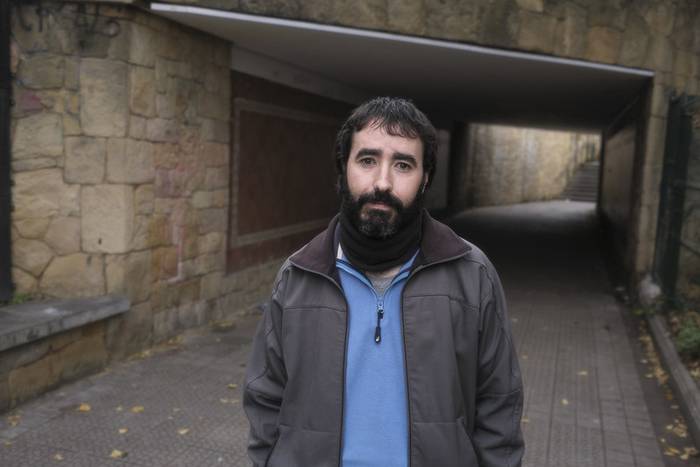
Currently, forecasting is not easy, but what is your point of view?
I would not say that we are going to get worse, but we are going to a society with lower consumption, a world with less energy and less materials, and that will mean simplification and a more local life. Is that going to get worse? Perhaps for a person who dreams of going to Berlin at the weekend, yes, but I do not think that by chance he will create a worse life. I believe that living more locally can also be a benefit for the Basque people, because it would be a lifestyle in which local media and local culture would also have more strength. In recent decades we have gone to a more global world, with increasing interconnection and mobility, but this has also meant the greatest loss of linguistic and cultural diversity of all time, so I believe that living more locally can also benefit the Basque people. The setback in that globalization can provide an opportunity to breathe into those cultures and small languages.
It also proposes a look at the societies of the past, right?
As for the collapse of our environment, the fall of the Roman Empire stands out. So 40 languages came out of the area that was occupying the Latin, so we can get a sense of what will happen to that possible disaster from the ecological crisis. In any case, I think we are going to a world with greater cultural diversity, but that does not mean that the survival of the Basque country is guaranteed. That is why I believe that today we must lay the foundations for the Basque Country to be guaranteed its reproduction. However, the ecological crisis also has a face B and many resources that guarantee the survival of the Basque Country may be in danger. For example, many of us have Euskaldunified in schools or in Euskaltegis, but we do not know whether that will have a guaranteed future, because the resources of what we know as the welfare state are increasingly scarce, and going to a simpler life can mean fewer years of education or fewer resources for Euskera.
It has spent several years working with the Garabide association on languages in Guatemala. How have you seen reality?
I was struck by the fact that this is a process that is very similar to that of the early twentieth century. Until now, Guatemalan society has been a very traditional and peasant society, but this world is disappearing with the schooling of children: young people studying come to cities in search of jobs they cannot do in rural areas, which is causing the disappearance of the reproduction of their languages. I've seen in many communities that grandparents were monolingual in Maya; that their children knew bilingual, Spanish and Mayan; and that third-generation young people knew only Castilian. In this sense, it can be said that television and school have achieved what the colonization of 500 years has not achieved, and there you can see the strength and influence of the globalization process. I know the case of Guatemala closely, but something similar is happening all over Latin America. For example, during the mandate of Evo Morales several languages have been lost from Bolivia, and I do not believe that the government of Morales, being indigenist, is his fault or intention.
He is also a member of the Yellow Fever association. What is your approach to what you say?
Our objective is to make visible the impact and the relationship of the ecological crisis with other dimensions of society. We believe that finding a solution to the ecological crisis is not enough, because that also has to be fair and egalitarian, so we consider that it is closely linked to the conflict between social classes. For example, when there is such a crisis, we see that women always take care of the work, which links the ecological crisis with feminism. At the conference we also mentioned that there is a link between cultural diversity and our way of relating to nature; it is important that environmentalism be added to other movements that want to drive social transformation, even if they are not directly related to environmentalism: housing unions or workers, feminist movement, associations of neighbours… If we have to give a fair and equitable solution to the ecological crisis, the relationship between the different liberation movements, because we cannot fight each.
You combine minority language and culture with environmentalism, what is your hypothesis?
It has been observed that the greatest biodiversity and linguistic diversity is concentrated in the same places in the world; what is unclear is that the survival of different cultures is due to the ability to maintain the biodiversity of indigenous cultures or to the abundance of biodiversity. In other words, in this little research that I have carried out, I have seen that in places where dominant structures have been created in general and major empires in particular, both biodiversity and cultural diversity, it has been destroyed, so you can see a common logic of domination, which we must face with a common logic of liberation.
Euskaraldia comes back. Apparently, it will be in the spring of next year. They have already presented it and the truth is that it has surprised me; not Euskaraldia himself, but his motto: We'll do it by moving around.
The first time I have read or heard it, the title of the... [+]
I do not know if you also have the same perception – I recognise this: here I have started to write in a scientific way. I am referring to the natural extension of the word laziness. I hear more and more in the corners of Hego Euskal Herria: Basque, Spanish and, of course,... [+]
The Basque country has a very large water flow in the shortage. Every local drop curls and revives our culture. Offer a sea of water to that thirst. Although the Basque Country has come from a deep and dark well, we have all drawn our sample of salt water and turned it into a... [+]
















